By clicking a retailer link you consent to third-party cookies that track your onward journey. This enables W? to receive an affiliate commission if you make a purchase, which supports our mission to be the UK's consumer champion.
Best champagne: our experts reveal brilliant bubbly
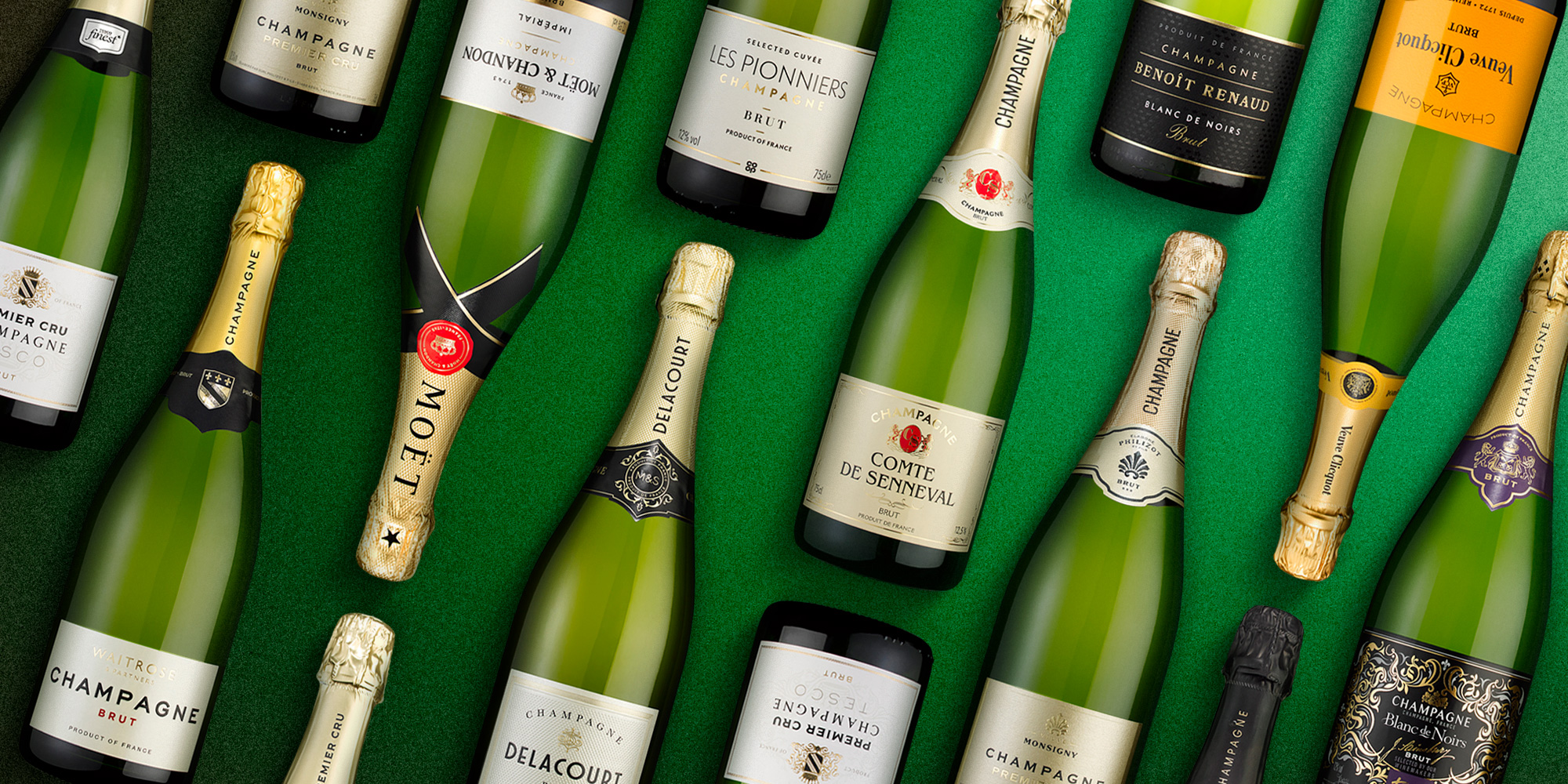
We asked a panel of independent wine experts to blind-taste eight supermarket champagnes priced between £14 and £26 – alongside bottles from iconic houses Moët & Chandon and Veuve Clicquot, which cost roughly twice as much.
The verdict? You don’t need to splash out for standout bubbles. Our experts were seriously impressed with the supermarket selections, proving that great fizz doesn’t have to come at a hefty price.
Two bottles earned the title of Best Buy, with one also named Great Value – a winning combination that’s guaranteed to add a sparkle to your celebrations.
Find out which supermarket champagne outshone the big brands, and raise a glass to brilliant bubbles at great prices.
How we tested champagne
Expert panel
Our wine experts tasted and rated eight supermarket champagnes, as well as fizz from two big brands, to help you choose the best for Christmas.
Independent
We bought every bottle ourselves, always paying the full price, with a spare on hand to double-check any questionable samples.
No labels
Champagnes were anonymised and tasted by our experts in a random order, so only flavour and quality counted.
Final verdict
After tasting and comparing notes, the panel agreed on scores and only then did we reveal our Best Buy champagnes.
Best champagne
Only logged-in Which? members can view our full independent test results and tasting notes from the expert panel for every non-vintage champagne we tested below.
If you’re not yet a member, you’ll see an alphabetically ordered list of the champagnes we tested. To get instant access to these and all our reviews, join Which? today.
Aldi Veuve Monsigny Premier Cru Brut Champagne
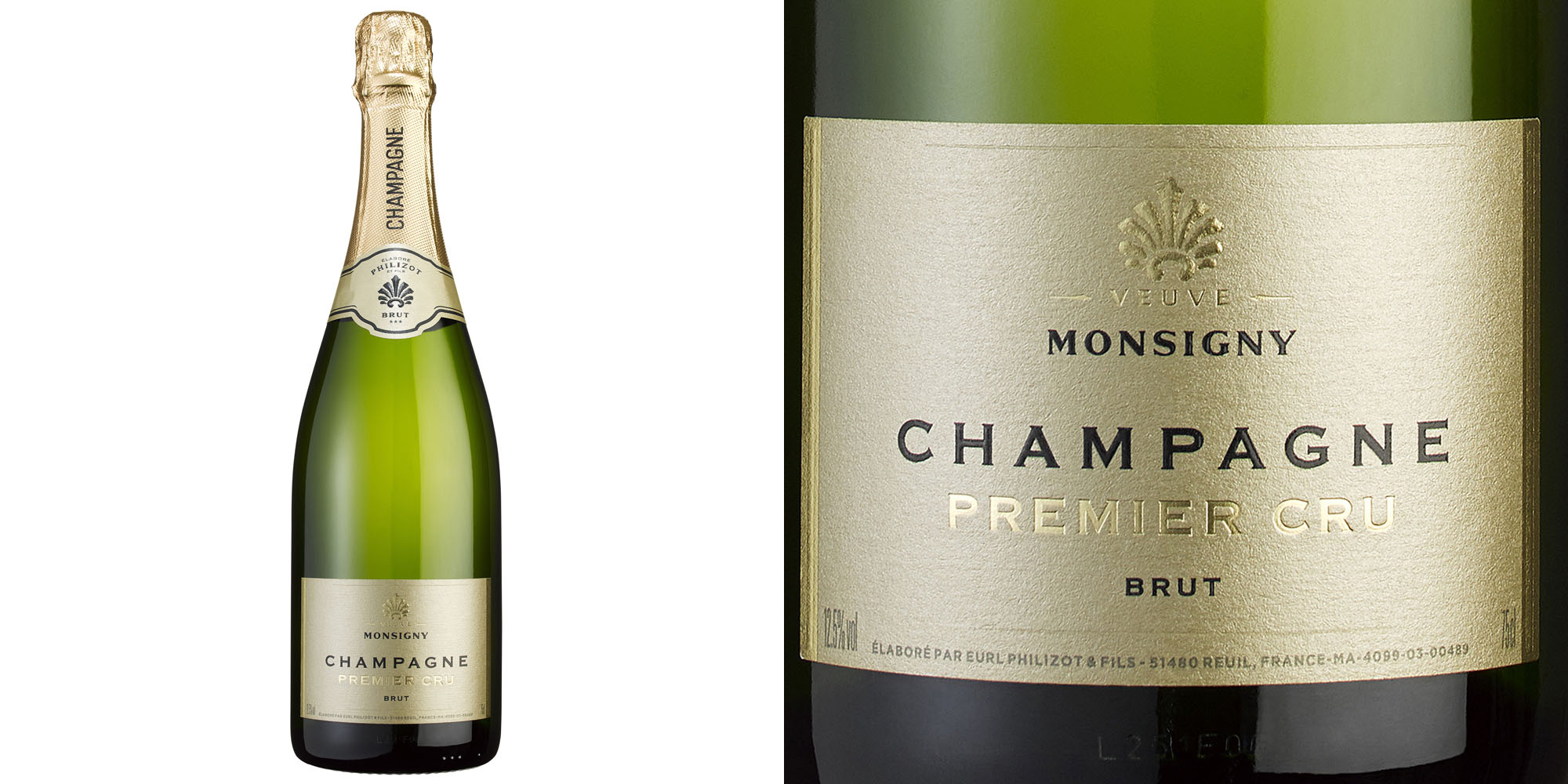
£22.99 for 75cl | France | Vegetarian and vegan | 12.5% ABV
Tasting notes: Aromas of ripe apples and soft red fruits meet delicate floral hints. Citrus, strawberry and baked apple notes lead to a clean, lingering finish.
Want to buy without reading our results? Available from Aldi (in-store only).
Asda Exceptional Benoît Renaud Blanc De Noirs Brut Champagne
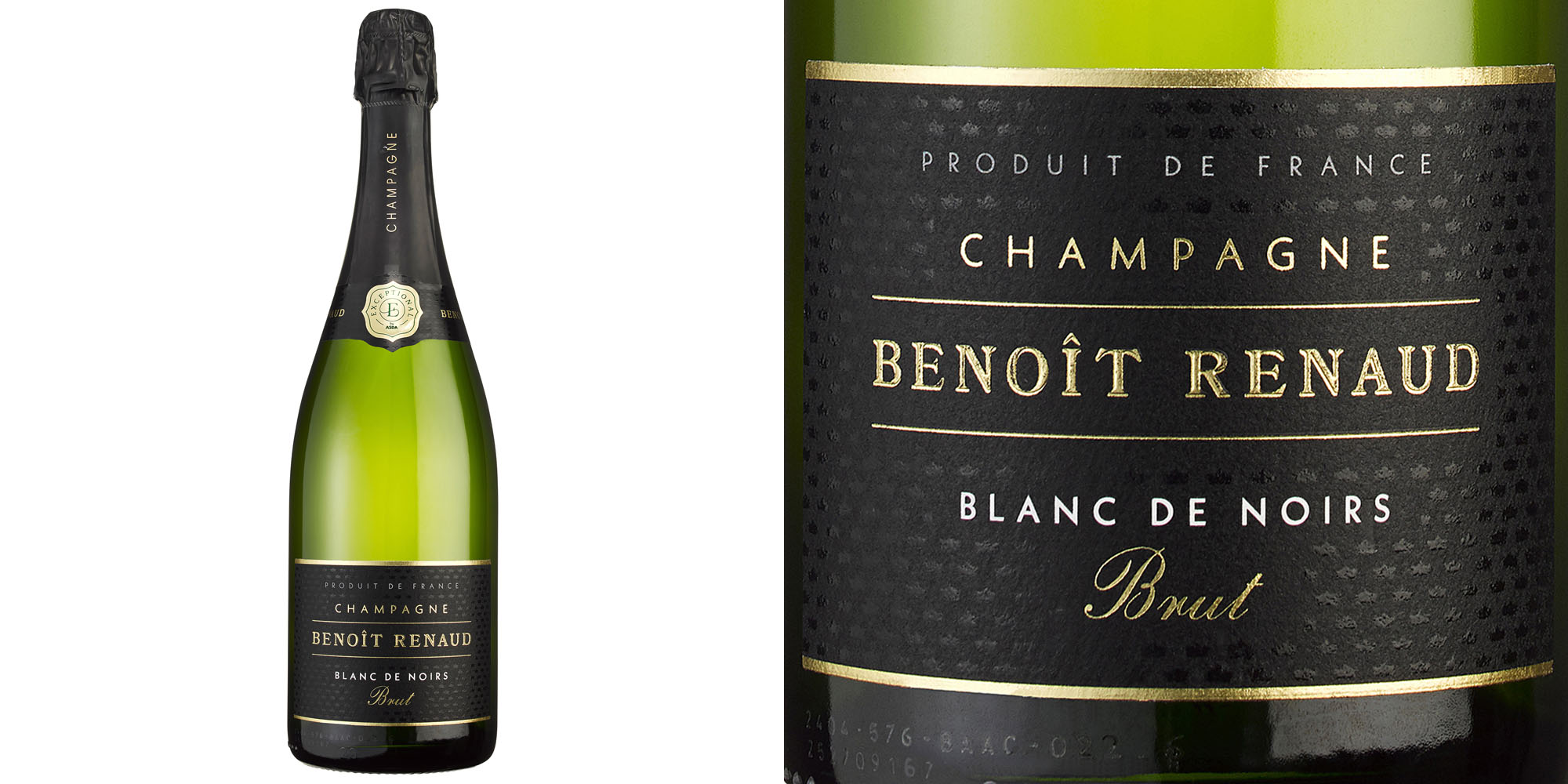
£24.98 for 75cl | France | 12% ABV
Tasting notes: Well balanced and fruity, this champagne brings together flavours of citrus and vanilla.
Want to buy without reading our results? Available from Asda.
Co-op Les Pionniers Champagne
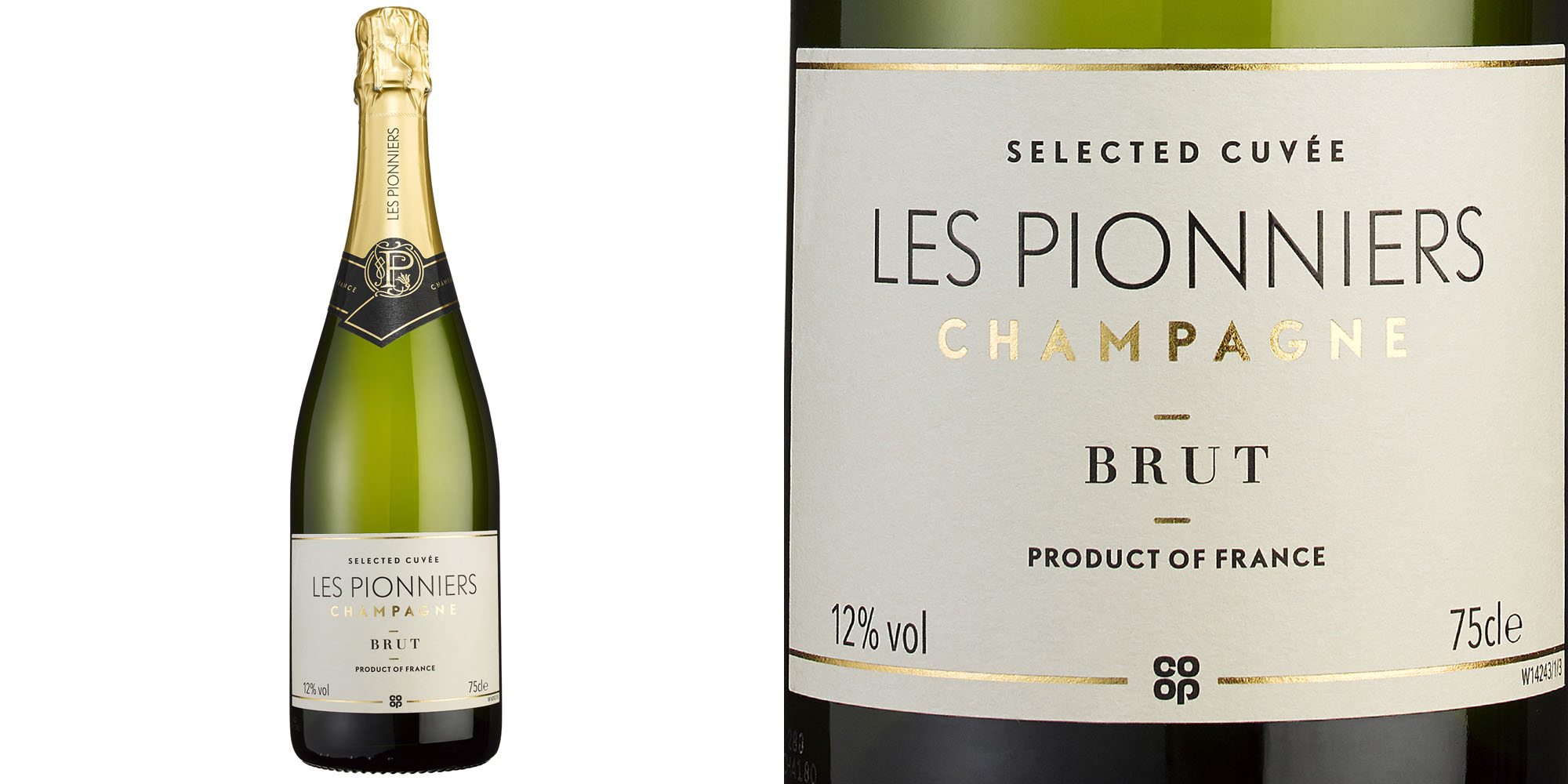
£21.75 for 75cl | France | Vegetarian and vegan | 12% ABV
Tasting notes: A refreshing and well-balanced champagne with a delicate powdery pink hue. Light with intense berry fruit aromas.
Want to buy without reading our results? Available from Co-op.
Lidl Comte de Senneval Brut Champagne
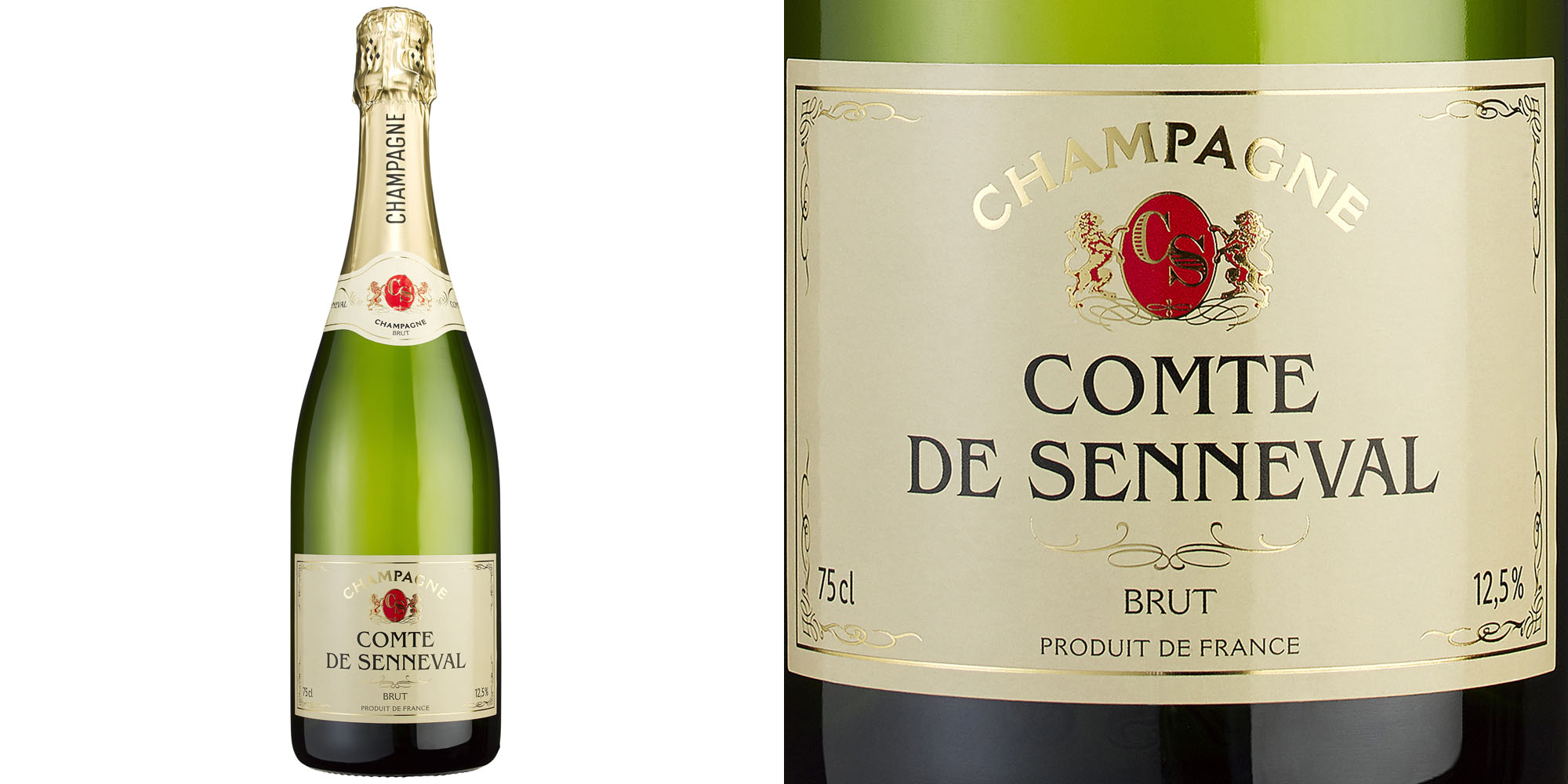
£13.99 for 75cl | France | 12.5% ABV
Tasting notes: Juicy and crisp, with apple flavours and hints of lemon.
Want to buy without reading our results? Available from Lidl (in-store only).
M&S Delacourt Brut Champagne
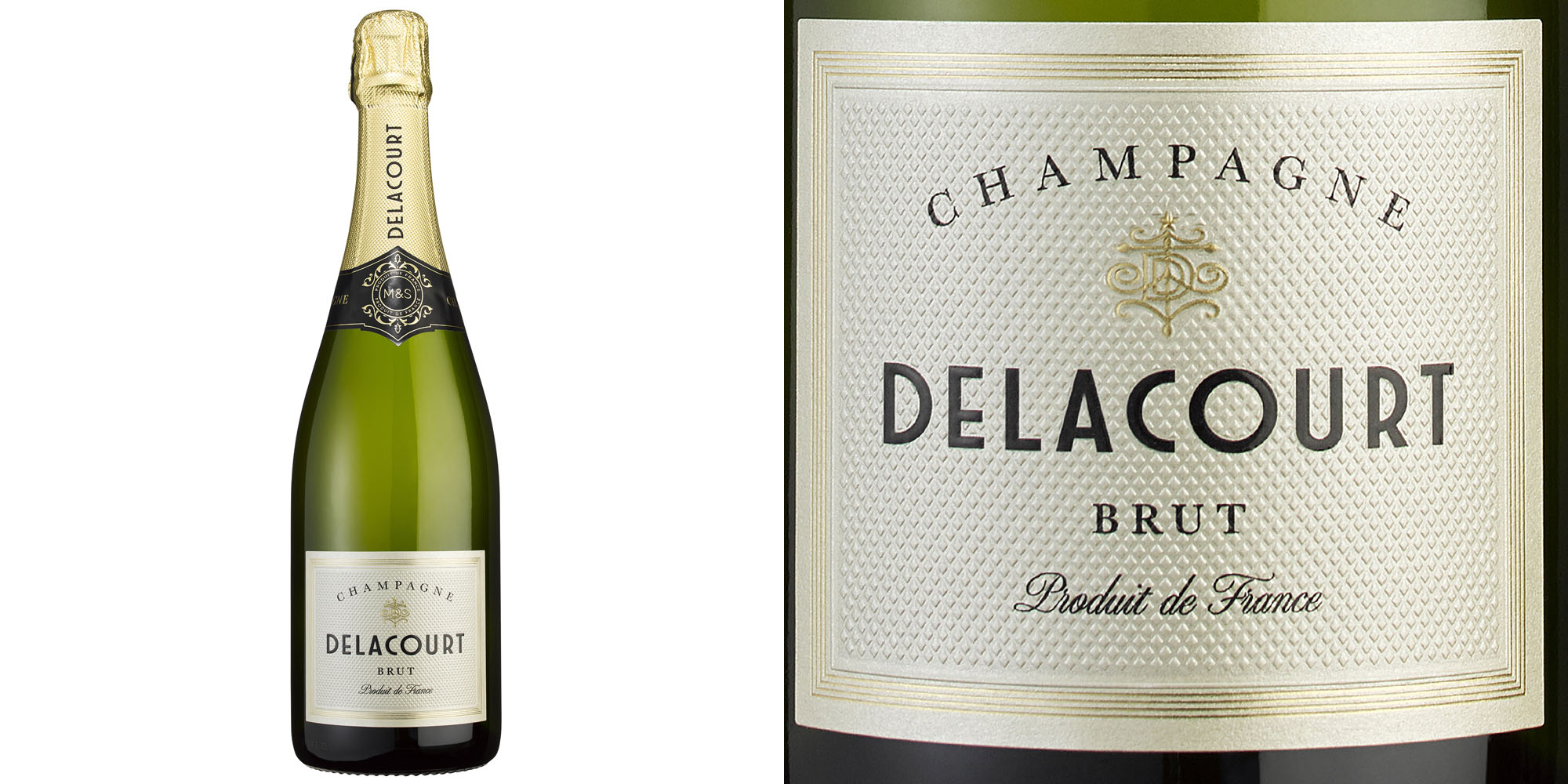
£25 for 75cl | France | Vegetarian and vegan | 12.5% ABV
Tasting notes: Creamy bubbles with a taste of brioche, vanilla, red apple and tangy peach.
Want to buy without reading our results? Available from M&S (in-store) and Ocado.
Moët & Chandon Impérial Brut Champagne
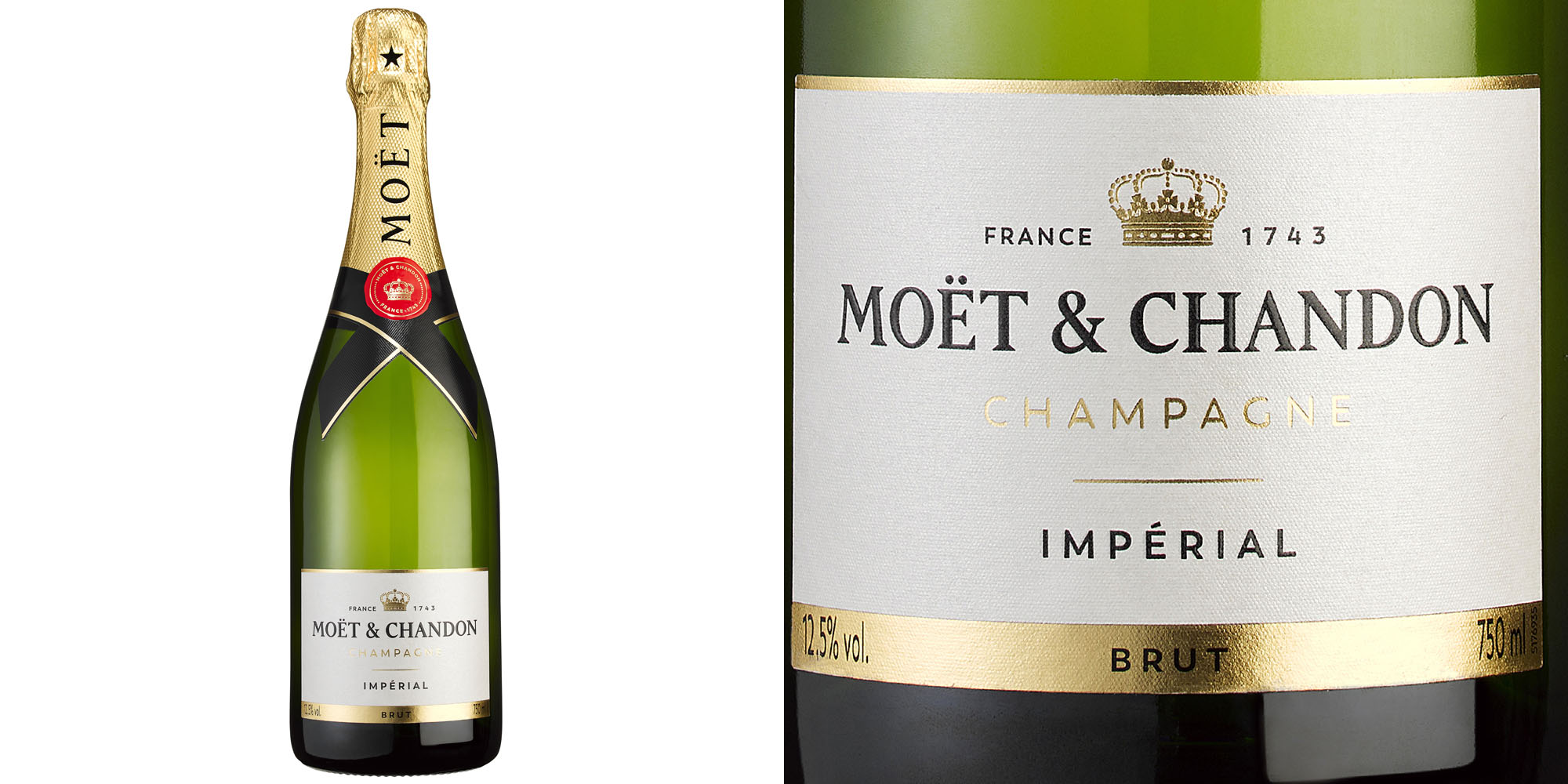
£45 for 75cl | France | 12.5% ABV
Tasting notes: Moët & Chandon Impérial Brut reveals aromas of pear, citrus and brioche.
Want to buy without reading our results? Available from Tesco.
Sainsbury’s Taste The Difference Blanc De Noirs Champagne
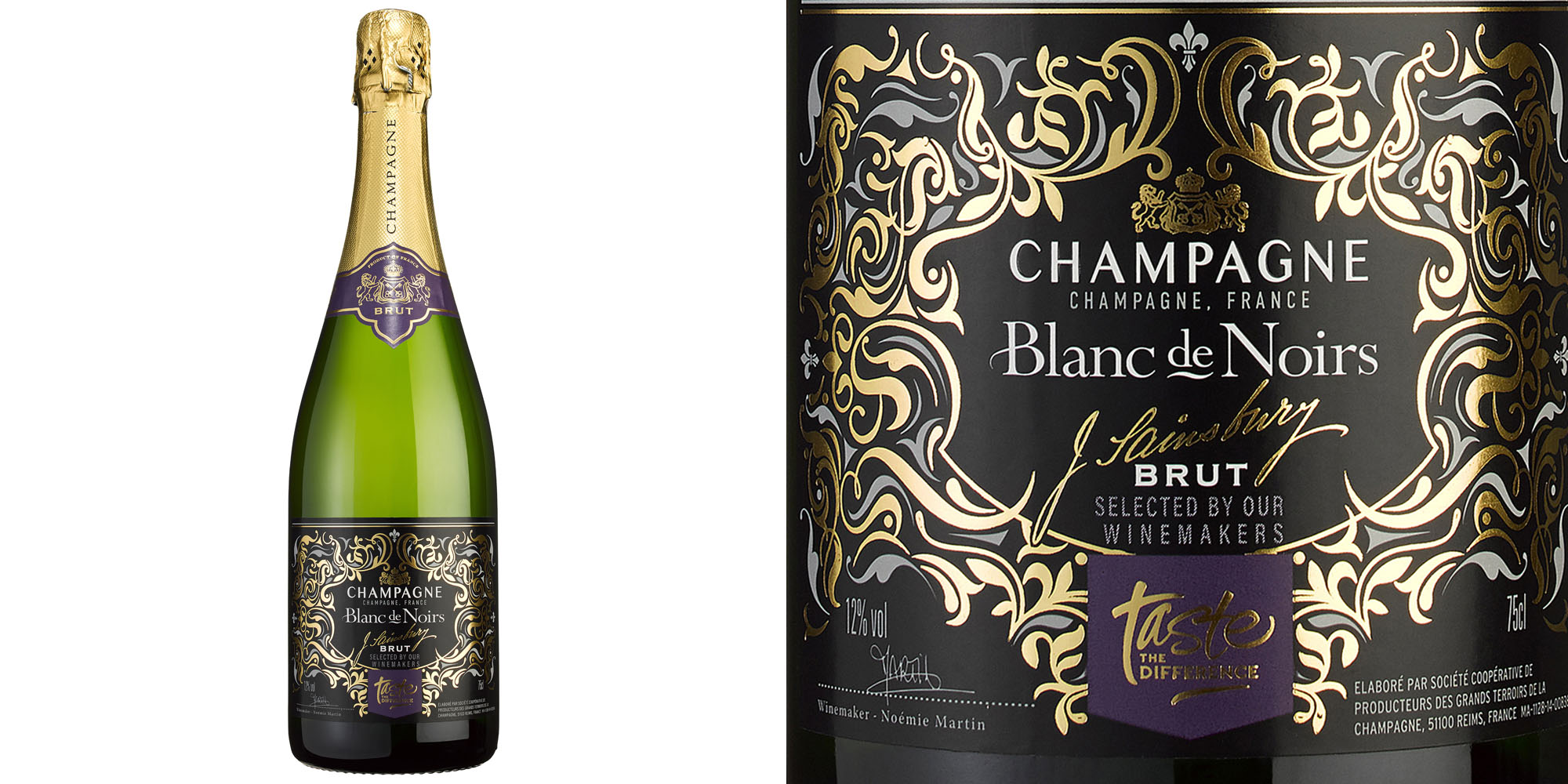
£26 for 75cl | France | Vegetarian and vegan | 12% ABV
Tasting notes: Fresh and fruity with delicate hints of toasty biscuit, and appealing richness and balanced acidity.
Want to buy without reading our results? Available from Sainsbury’s.
Tesco Finest Premier Cru Brut Champagne
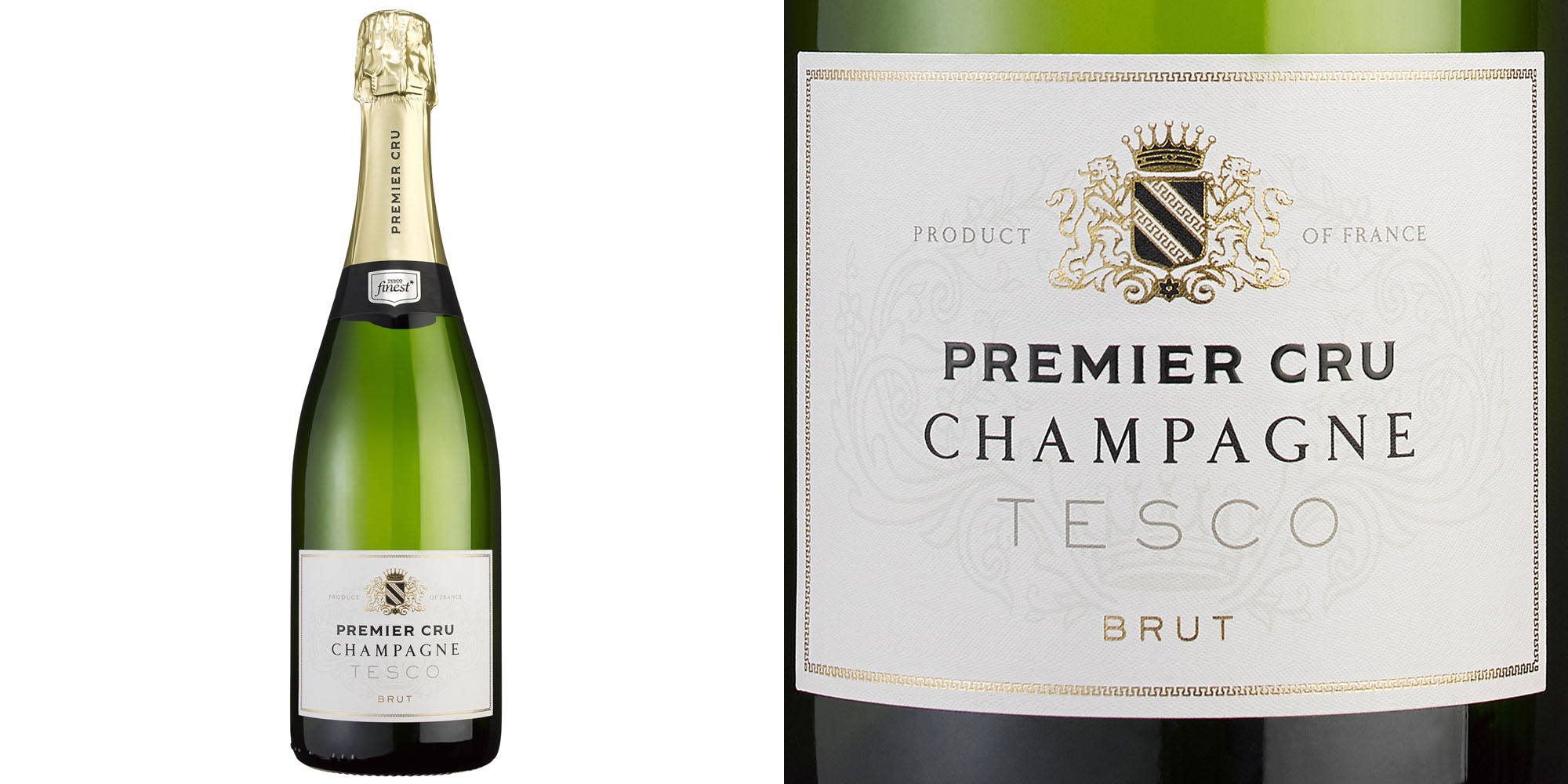
£26 for 75cl | France | Vegetarian and vegan | 12.5% ABV
Tasting notes: Elegant flavours of citrus, green apple and brioche with a fine mousse.
Want to buy without reading our results? Available from Tesco.
Veuve Clicquot Yellow Label Champagne Brut
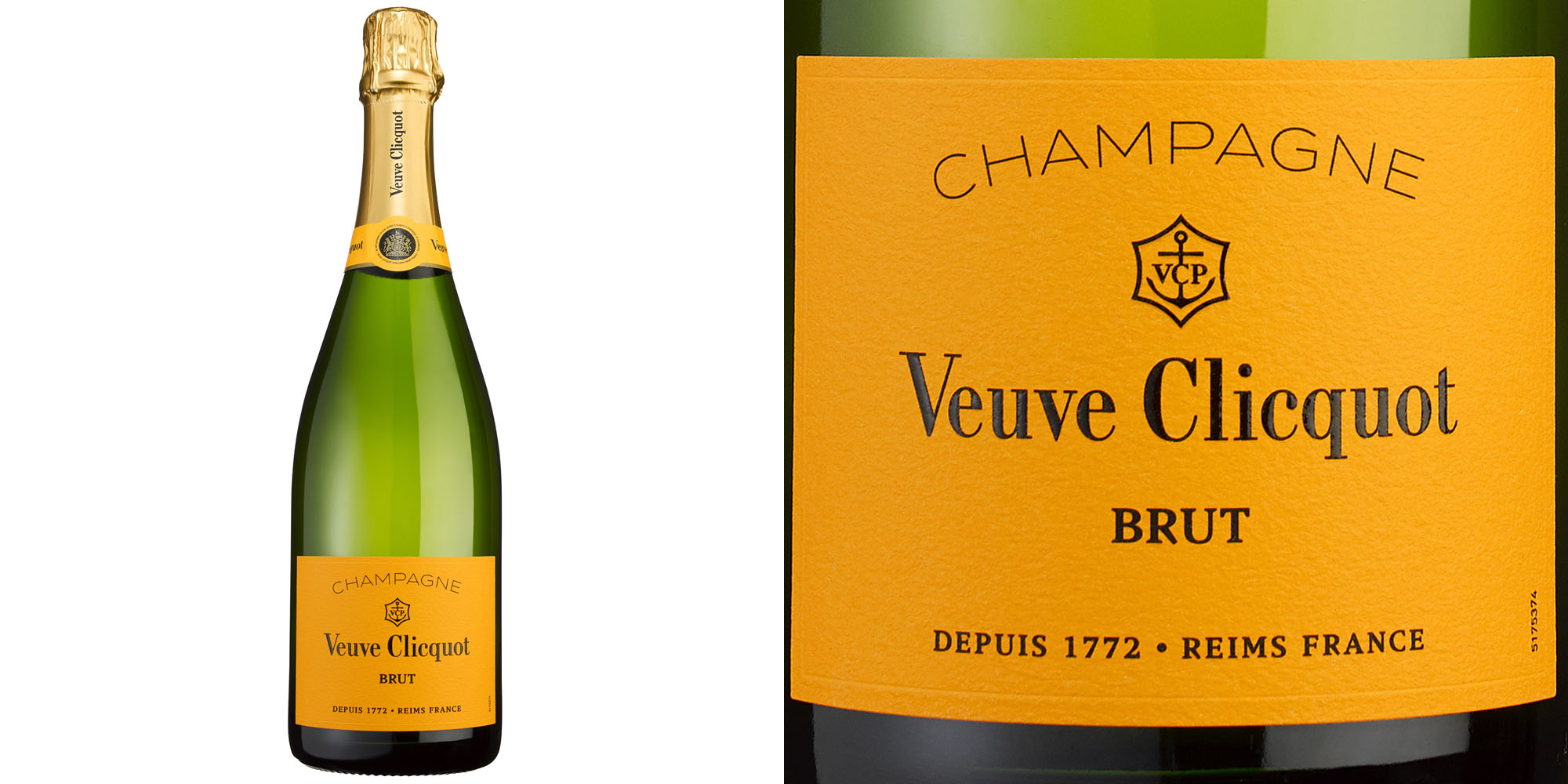
£50 for 75cl | France | 12.5% ABV
Tasting notes: Offers flavours of pear, peach and pastry enhanced by a touch of dried fruit from ageing on lees.
Want to buy without reading our results? Available from Ocado.
Waitrose Brut Champagne
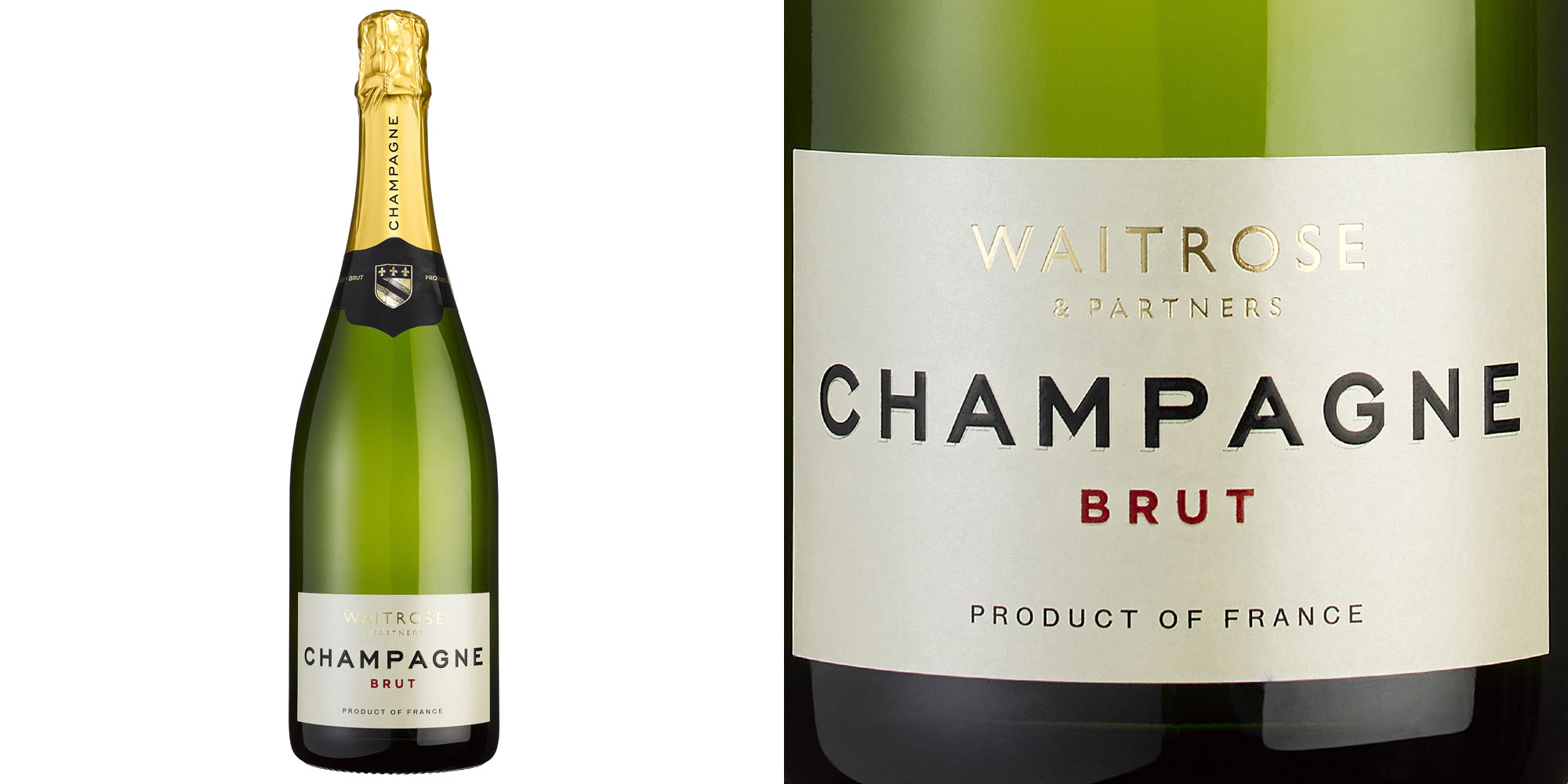
£26 for 75cl | France | Vegetarian and vegan | 12% ABV
Tasting notes: Round and fruity with a lovely toastiness.
Want to buy without reading our results? Available from Waitrose.
Price and availability checked November 2025.
Best sparkling wine – our expert taste test reveals the best budget-friendly fizz, including top cheap picks for crémant, cava and prosecco
How we test champagne

Our panel of four independent wine experts blind-tasted 10 champagnes in September 2025.
Our expert tasting panel included:
- Sam Caporn MW Master of Wine, consultant, speaker, writer and co-chair of the International Wine Challenge (IWC)
- Peter McCombie MW Master of Wine, speaker, consultant and co-chair of the IWC
- Ray O'Connor MW Master of Wine, speaker, wine producer and consultant
- Helen McGinn Author, drinks writer, TV presenter and co-chair of the International Wine Challenge (IWC).
We asked each supermarket to put forward a non-vintage champagne costing up to £50 (excluding special offers).
Our expert tasters weren’t just looking for bubbles — they wanted something special. Each champagne was judged on its aroma and flavour: a lively, fresh fruitiness balanced by savoury depth, and that all-important acidity that keeps every sip crisp. Age makes a difference, too – younger champagnes should sparkle with freshness, while older ones often reveal toasty, complex notes that add richness.
As always, we buy every product we test. If a bottle isn’t yet on supermarket shelves, we’ll source it directly – but we still pay full price to keep our reviews completely independent.
Every champagne was tasted ‘blind’, so our experts had no idea which bottle they were sampling. Each one was tried in a different order to avoid bias, and only after every glass had been scored did the big reveal happen — uncovering which labels had truly earned their Best Buy and Great Value crowns.
Why you can trust us: at Which? we're free from manufacturer and retailer influence. Find out more about our editorial independence policy and see behind the scenes of our taste tests to understand more about how we work
The best way to chill champagne

Fail to chill your champagne properly and you'll end up with fizz flying everywhere. Our experts warn that a warm bottle is a recipe for an explosive opening.
Follow our tips for chilling your champagne to serve it at the right temperature and you'll be rewarded with the best of the flavour – and your bubbly won't end up all over the floor.
- Plan ahead Put your champagne in the fridge for at least two hours before you plan to serve it. If you’re chilling lots of bottles at once, or have a very full fridge, you’ll need longer.
- Chill with ice and water If your fridge is overflowing, chill the bottle in a container filled with ice and water – this works better than ice alone.
- Use your freezer as a backup If you forget to chill your bottle in advance, you can pop it into the freezer for 20 minutes as a last resort. Just remember to set a timer.
- Don’t serve it straight from the fridge Unless you prefer your champagne really cold, take the bottle out of the fridge 10 minutes before serving – the taste and aroma will be stunted if it's too cold.
When opening a bottle of champagne, unwrap the foil cap that protects the cork and carefully unscrew the wire restrainer while keeping your thumb over the top of the cork.
Slip the wire off and place your thumb back on the cork, then tilt the bottle slightly. Use one hand to keep hold of the cork and turn the base of the bottle with your other hand. Continue to do this and the cork will easily – and safely – pop off. Make sure you're pointing it away from your face (and anyone else's) at all times.
Champagne glasses
The type of glass you serve champagne in is important too. But don't start searching through your cupboards to try and find the special occasion flutes. Our experts recommend you pour fizz into a tulip or white wine glass instead.
'The type of glass you use really does make a difference,' says Sam Caporn MW. 'It's useful to remember that you don't really "taste" wine, you smell it, and the narrow top of the flutes doesn't allow for the volatile aromas to escape up your nose. Fizz also escapes far too quickly from a coupe glass.'
So ditch the flute and opt for a white wine glass instead – you'll be able to smell the champagne more effectively, which will also enhance its taste.
Best Buy food and drink – we reveal the best value and tastiest supermarket picks from our blind-taste tests
Does champagne get better with age? How to store it properly

How long your champagne will last for depends on the style.
Non-vintage champagne can last unopened for three to four years, while vintage champagne (from a single year's harvest) can be kept for as long as 10 years. Some people prefer to store it for a while before opening to allow it to age.
Typically, champagne improves with a little extra ageing, unlike other sparkling wines such as prosecco. To prevent your champagne ageing too quickly, our experts recommend storing bottles standing up in a dark place with a cool, constant temperature.
Once opened, it's best to drink champagne within three to five days. After this, it might lose its fizz. You may have heard that a wad of kitchen paper or a teaspoon in the bottle can help to retain bubbles but, according to our experts, neither of these methods is particularly effective.
If you often end up with a half-finished bottle, it's worth investing in a proper sparkling wine preserver to help your champagne last longer after it's been opened. These start from around £4.50, with simple stoppers designed for fizz available at supermarkets and other retailers such as Amazon and John Lewis.
Need a special fridge to store your drinks? Check out the best wine coolers and wine fridges
Best food to have with champagne

We asked our experts for their tips for what food goes best with champagne:
- Serve with spice Fizz accentuates chilli, so a glass of champagne pairs well with hot, spicy dishes.
- Pair with vegetarian food Champagne tends to work better with vegetarian dishes, as opposed to heavier meat options.
- Consider sweetness Dry champagne is easier to match with food. Sweeter wine such as prosecco is best served without food.
- Enjoy with cheese Champagne pairs well with most types of cheese, particularly creamier cheeses. Champagne and comté is a classic pairing.
- Smoked salmon The popular pairing of champagne with smoked salmon might be influenced more by status than taste, as historically both were considered expensive luxuries. Our experts said the champagne acts like a squeeze of lemon, providing acidity to cut through the richness of the salmon. As long as you choose a dry champagne, it's not a bad match.
Our experts also pointed out that it works well as a starting point for celebrations and parties, without necessarily being served alongside food, before you move on to mellower options with your meal.
How to get champagne on the cheap

Our experts advised that stocking up on good champagne is worthwhile, as it gets better with age and can be kept for a number of years.
They’re fans of a multibuy deal, so take advantage of offers on the fizz you like. Most major supermarkets periodically do a 'buy three/six bottles get 25% off' offer, usually in the run-up to Christmas and other bank holidays, so keep an eye out for these.
We spotted variations of this deal at Lidl, Morrisons, Ocado, Tesco, Sainsburys and Waitrose before other big dates in the calendar, such as Valentine's Day.
If you need more inspiration on what to stock up on when there's a multibuy offer, check out our pick of the best red wines
Vintage vs non-vintage champagne: what’s the difference?

Have you spotted the abbreviation NV on a bottle of champagne, but not sure what it means? NV stands for non-vintage champagne. It's essentially a 'house' blend made using grapes harvested in different years to an established overall taste profile. All of the champagnes we tested are non-vintage.
To produce high-quality fizz, producers strive to balance the quality and style of non-vintage champagne over several years to minimise the difference as much as possible. Making non-vintage champagne is considered a highly skilled art of blending. It means that if you buy a particular brand or product, you know roughly what to expect in terms of taste.
That's great for when you want a consistently delicious drink. Our experts were impressed by some of the supermarket offerings in this area, which they considered 'safe' choices – especially when entertaining.
Vintage champagne, on the other hand, is made using grapes harvested from a single year, which will be displayed on the label. It tends to be pricier, as the flavour will represent the characteristics of that particular year's harvest and is more unique. This means it's better for savouring in a smaller gathering than serving en masse.
Psst! We've reviewed the best wine clubs – check out our guide to see how the big names did
How to recycle champagne bottles

Glass bottles can usually go in your household recycling bin. If your council doesn’t accept them, you can take them to a local bottle bank.
The recycling process can vary depending on where you live, so check with your local area if bottles require rinsing first and whether metal screw caps should be replaced or recycled separately.
Natural corks can’t go in your recycling bin. You can recycle them through Recorked UK – either by posting them or dropping them off at your nearest collection point.
Synthetic corks, which are made of plastic, can’t be recycled. They should be disposed of in your general waste bin.
Please drink responsibly. See Drinkaware for information and advice.
